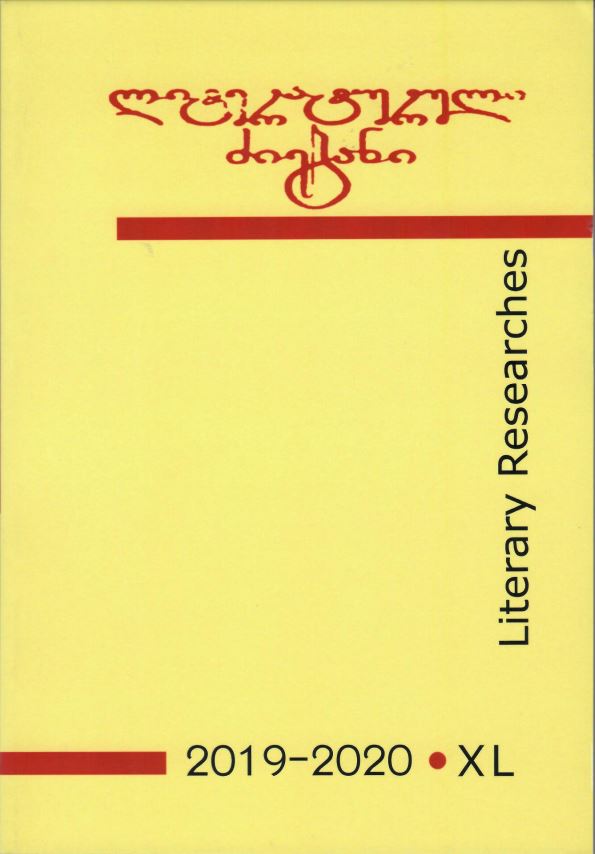გამოქვეყნებული 2020-10-20
საკვანძო სიტყვები
- Georgian Literature History,
- Systematic Study,
- Systematization of the National Literatures History,
- Petre Umikashvili
როგორ უნდა ციტირება
ანოტაცია
The first attempts at the systematization and the unification towards a systematic approach of Georgian literature history originated in the 19th century. During the initial stage of the development of critical thinking in Georgia, the process of a proper theoretical foundation progressed within the general European framework, creating the discourse for the systematization of the national literatures history.
Petre Umikashvili is an author of the article “Georgian Literature (From the Beginning to the Present Time)”, published in 1904 in the magazine named: “Georgian Calendar”. The researcher sought to evaluate the history of the centuries-old Georgian literature, to systematize it, and attempted to divide it into periods. Petre Umikashvili summarizes the history of Georgian literature and divides it by periods:
I – The beginning of the Literature (VI – XI);
II – Blossom of Literature (from the 12th century to the Mongol invasion);
III – The Weakening Period (from the Mongol invasion to the 17th century);
IV – Renewal of Literature (from XVIII Century to XIX Century);
V – XIX Century:
a) From the beginning of the Nineteenth century to the Abolition of Serfdom;
b) The New Period (from the abolition of the Serfdom until the end of the XIX Century) Umikashvili’s assessment stands out from all the previous attempts of the periodization. Petre Umikashvili’s priority is to “save the Georgian people”, to “preserve” the Georgian language and “unique” centuries-old Georgian culture, and the history of Georgian literature is precisely in this respect.
In categorizing the history of the literature into periods, the researcher applies different principles of systematization:
a) he applies the cultural-historical principle while categorizing the first two periods – the chronology of these periods is determined by historical events important to national culture: “Beginnings of Scripture” and “The Age of David the Builder” – I period; “King Tamar’s Time” and “Mongol Invasion” – II period;
b) The third and fourth periods are separated by chronological order (XVII, XVIII and XIX centuries).
c) The nineteenth-century assessment is based on the socio-historical principle: it begins with the “abolition of kingship”, and the researcher considers the “abolishment of serfdom” to be a split between two periods. Umikashvili considers that the change of social status among the people is the priority. But the critic also adds that a new generation of educators is emerging at this time pointing to the emergence of the generation of “Tergdaleulebi”. Although Petre Umikashvili does not refer to the term ‘world literature’, the terms ‘world’ and ‘European’ were synonymous among nineteenth century literary the literary critics. Petre Umikashvili applies comparative-historical methodological principles in the researching process (by comparing European writers to the Georgian ones: Lord Byron, Ivan Krylov, Jean de La Fontaine) which was the new experience of that time. The aim of Umikashvili, as well as other historians of Georgian literature of that era, is to bring “ancient” and “unique” Georgian writing into the spotlight. The high appreciation of Georgian writers’ interest (Vivian, Marten, Boehp, Marie Brosse, Langlua, Dubua, Shantri, Schiller, Kovalevski, Muraviov, etc.) and the hard work done by foreigners is a clear proof of this. In conclusion, it can be said that Petre Umikashvili’s letter “Georgian Writing (From the Beginning to the Beginning)” reflected the variety of theoretical and methodological searches characteristic of his time.

